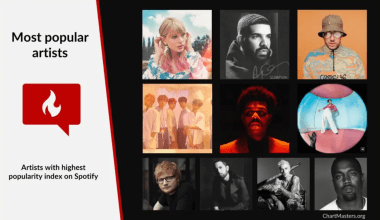Managing a music artist can feel like juggling ten balls while riding a unicycle. It’s exciting, challenging, and immensely rewarding. If you’ve ever wondered how to manage a music artist successfully, this guide will walk you through the essential steps, best practices, and tips for keeping everything on track. Whether you’re new to artist management or looking to refine your approach, we’ve got you covered.
Why Artist Management Matters
Artists are the heart and soul of the music industry, but behind every great artist is a hardworking manager. A good manager ensures that the artist’s creative vision is fully realized while also handling the business side of things. In simple terms, managing a music artist is about striking a balance between art and commerce.
The First Step: Building Trust
Before you dive into contracts or strategies, start with trust. A solid relationship with the artist you manage is crucial. Spend time getting to know them—their music, aspirations, and even their quirks. This foundation will make every other step smoother. Trust creates open communication, which is the backbone of artist management.
Understanding the Artist’s Vision
What kind of music do they want to create? What audience do they want to reach? Ask these questions and listen carefully to the answers. A clear understanding of the artist’s goals will shape every decision you make, from booking gigs to choosing a record label. Remember, your job is to help the artist achieve their dreams, not impose your own ideas.
Building a Team Around the Artist
Managing a music artist isn’t a one-person job. Surround yourself with a team of professionals who can support the artist in various ways. This might include:
- A publicist to handle media relations.
- A booking agent to secure live performances.
- A lawyer to review contracts.
- A social media manager to grow the artist’s online presence.
By delegating tasks to specialists, you can focus on the big picture.
Crafting a Brand for the Artist
In today’s crowded music landscape, branding is everything. Work with the artist to develop a cohesive image that reflects their music and personality. This includes visual elements like album art and stage outfits, as well as their tone on social media. A strong brand helps fans connect with the artist on a deeper level.
Managing Day-to-Day Operations
As a music manager, you’ll wear many hats. One day you might be negotiating contracts, and the next you could be coordinating a photoshoot. Here’s a quick list of daily tasks you might handle:
- Scheduling studio sessions and rehearsals.
- Responding to emails and inquiries.
- Monitoring finances and budgets.
- Promoting upcoming shows or releases.
Staying organized is key. Use tools like calendars, task management apps, and spreadsheets to keep everything running smoothly.
Networking is Key
The music industry is all about connections. Attend industry events, join relevant organizations, and build relationships with key players. Networking can lead to new opportunities for your artist, from collaborations to festival bookings.
Handling Finances and Royalties
Money can be a tricky topic, but it’s one you can’t avoid. As a manager, you’ll often oversee the artist’s income and expenses. This includes:
- Setting budgets for tours and music videos.
- Tracking royalties and ensuring they get paid on time.
- Advising on long-term financial planning.
A good accountant can be your best friend in this area.
Contracts are a big part of managing a music artist. From recording deals to sponsorship agreements, make sure every document is reviewed carefully. While you don’t need to be a lawyer, having a basic understanding of contract terms will help you protect your artist’s interests.
Planning and Executing Marketing Strategies
Promoting the artist’s work is one of your most important roles. A well-thought-out marketing plan can make the difference between a hit and a flop. Focus on:
- Leveraging social media platforms.
- Reaching out to music blogs and radio stations.
- Creating engaging content like behind-the-scenes videos.
Consistency is key. A steady stream of promotions keeps fans engaged and attracts new listeners.
Supporting the Artist’s Mental and Physical Well-Being
The music industry can be tough, and burnout is common. As a manager, part of your role is to look out for the artist’s well-being. Encourage healthy habits, provide emotional support, and recognize when they might need a break. A happy and healthy artist is a productive artist.
Preparing for the Unexpected
No matter how well you plan, surprises will happen. A canceled show, a sudden PR crisis, or a last-minute schedule change can throw a wrench in your plans. Stay calm, think on your feet, and always have a backup plan.
Celebrating Success Together
When your artist achieves a milestone—whether it’s releasing a hit single or selling out a show—take the time to celebrate. Success is a team effort, and acknowledging these moments strengthens your relationship.
Staying Adaptable
The music industry is always evolving, and what works today might not work tomorrow. Stay informed about trends and be willing to adapt your strategies. Flexibility is one of the most important traits of a successful music manager.
Conclusion
Managing a music artist is a journey filled with ups and downs, but it’s also deeply rewarding. By building trust, understanding the artist’s vision, and staying organized, you can help them achieve their dreams. Remember, at its core, artist management is about partnership and passion. When you pour your heart into it, the results can be extraordinary.
For further reading, explore these related articles:
For additional resources on music marketing and distribution, visit DMT Records Private Limited.






